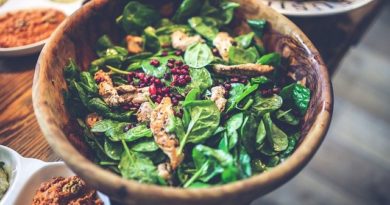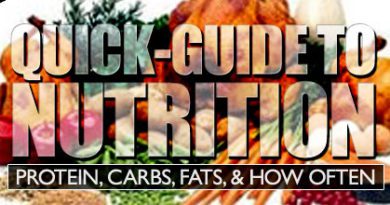Carrots for Better Eye Sight? What’s Up, Doc?
As a child I’m sure your parents told you that eating carrots will give you better eye sight and even allow you to see better in the dark. While that might have been a great way to coax you into eating your vegetables, it unfortunately isn’t true—at least not completely.
Disclaimer: This article is for informational purposes only and is not meant to treat or diagnose any condition. It is recommended that you speak with your doctor before starting any exercise program, changing your daily nutrition, or adding any supplements to your regimen.
Did Bugs Bunny have better eye sight due to carrots?
Vitamin A is known for helping with overall eye function and it’s recommended to get your daily value through whole food sources or through supplementing with a multivitamin. Carrots are full of beta-carotene which in the body will be converted into Vitamin A. So in theory, you would think carrots would then help improve one’s eyesight. However, due to most American’s getting enough Vitamin A through their diet or supplementation normally, purposely eating more carrots has very little additional benefits on eye health and eyesight.

Where eating more carrots to improve eyesight might actually be true would be when people are deficient in Vitamin A due to poor nutrition or not utilizing supplements to make up for missing micronutrients. Researchers have said, “In countries where the food system is less sophisticated and we see crushing poverty, the margin between harvest season and hungry season is palpable. These populations can dip into actual deficiency with Vitamin A, especially in respect to young, growing children who can become what we call ‘night blind.’”
Related Article: The Many Health Benefits of Carrot Juice
It’s said that individuals in well-nourished countries would actually need to stop eating anything containing Vitamin A for several months in order to become deficient. In other words, they would have to TRY to become deficient in order to really get to that point. With so many different foods at every American’s disposal, it would be very difficult not to be eating a food containing Vitamin A (such as milk).
Click here to continue reading…


*Disclosure: This article may contain affiliate links or ads, which means we earn a small commission at no extra cost to you if you make a purchase through these links. These commissions help support the operation and maintenance of our website, allowing us to continue producing free valuable content. Your support is genuinely appreciated, whether you choose to use our links or not. Thank you for being a part of our community and enjoying our content.
PLEASE CONSIDER SHARING THIS ON YOUR SOCIAL MEDIA TO HELP OTHERS LEARN MORE ABOUT THIS TOPIC.





